Last week’s article showcased a couple of the commonly accepted inaccuracies in early Jamaican popular music, and sought to provide credible evidences to substantiate those claims. There were several other instances of such inaccuracies, some posted on social media and other well-reputed websites.
It would appear that in the music’s formative years, the major players in the dissemination of information about Jamaica’s popular music were not so much concerned about proper documentation, but more about making money, while the singers’ main concern was to hear their songs being played on the radio. Incorrect information therefore, became something more like a chain reaction that was tossed around nonchalantly from generation to generation without being challenged. In order to be as authentic as possible, the Music Diaries relies mainly on the source.
One authentic source of the story concerning the genesis of The Paragons a very popular Jamaican rocksteady vocal group of the 1960’s is Bob Andy, himself a popular singer/songwriter of that period. Andy’s story refutes many others who claim that the group began as a trio with John Holt as the initiator. Herein lies another of the commonly accepted inaccuracies that have plagued early Jamaican popular music. The group, in fact, began as a quartet and made their first recording studio appearance at Studio 1 with members, Bob Andy, Tyrone Evans, Howard Barrett and John Holt. Even more startling to many untaught scholars is the fact that Holt was the last member to be drafted to the group. In an interview I had with Bob Andy years ago, he explained:
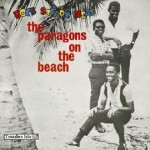
“Tyrone Evans and myself went to the Kingston Parish Church and we started singing as a duo. At the time, there were lots of duos on the market, like The Blues Busters, Higgs and Wilson, Keith and Enid, and Alton and Eddy. Tyrone thought that was kind of a strong field, if we were going to think about doing anything seriously. So we started listening to groups like The Four Tops, Temptations, and the Drifters before them, and while we played the piano and rehearsed, lots of people in the church hall would join in, so we just got the idea and tried many people until we settled with Evans, Barrett and myself. When we left, someone told us about John, who was on his way to becoming a solo artist and we got him into the group, and for what we were about, he fit perfectly, and so we continued as four until I left, and they remained a trio”.
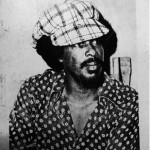
John Holt himself corroborated Andy’s version in another interview:
“I was along King Street one day and I saw my friend, Lloydie Custard, who told me there were some brothers up by Parish Church singing, and we took a walk there, and that’s where I really got involved with the Paragons.”
It was about the time of Jamaica’s Independence in 1962, that the quartet of Andy, Evans, Barrett and Holt, who did most of the lead singing, began performing as The Paragons at a number of public venues in Kingston and around the island with Byron Lee and The Dragonaires band, before getting into recording. They had a smooth entry into the recording business at Studio 1 with their debut, True Love at Last (I Was Lonely), in 1963. A moderate hit, it was followed by a few other cuts. Andy left the group shortly after and they went into a temporary hiatus, re-emerging in 1965 as a trio with crisper and tighter harmonies and Holt in command.
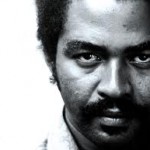
With the realization that the trio was becoming a very cohesive unit, the group ventured into the studios of the other top producer of the day Duke ‘The Trojan’ Reid to do some recordings. Happy Go Lucky Girl, was one of the earliest pieces to be recorded. Backed by Reid’s house band Tommy McCook and The Supersonics, with expert assistance from the master rocksteady guitar tactician Lyn Taitt, the recording chided carefree women with the words:
“Everyone in town knows about you, happy-go-lucky girl
The life you live isn’t too good, happy-go-lucky girl.”
This and the others that followed took Rock Steady ballads to a higher level, with dance and party fans swinging to music that was melodically sweet and harmoniously alluring. On The Beach-inspired the ‘Hops’ fad and generated beer sales all over the island:
“One more box of hops, says the man to the bartender.
One more box of hops, says the man, I won’t surrender”.
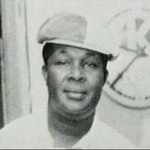
Their recording of Wear You to The Ball was perhaps the most influential Jamaican recording ever. Deejay U-Roy used the rhythm to create perhaps the most popular DJ recording ever, while it created the foundation on which many of the contemporary rapper built. The Tide is High gained worldwide recognition when a cover version by the American band, Blondie, climbed to number one on the UK/USA charts in 1980. In an unending flow of Jamaican number one hits, The Paragons added, Only a Smile a deception that conceals true character. The group recorded for several other producers, including a second stint with Clement Dodd, for whom they recorded the reggae hits Change Your Style, Have You Ever Been in Love and Satisfaction.
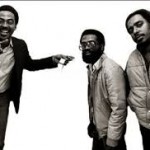
The name Paragons was brought to the group by Junior Menz, an overseas-based Jamaican, who was once a member of The Techniques, and who worked out with The Paragons in their embryonic stage. The name originally belonged to a defunct American group. According to founding member Bob Andy, “Menz would spend time in Jamaica during the summer, and a piano being at his home, we would go there to practice. He told us of an American group Paragons that started but was now defunct and we adopted the name. At one time, we were five with the inclusion of Trevor Tennant, an Excelsior student, and the name Pentagon was contemplated. When Tennant and Menz left, we replaced them with John”.



You must log in to post a comment.